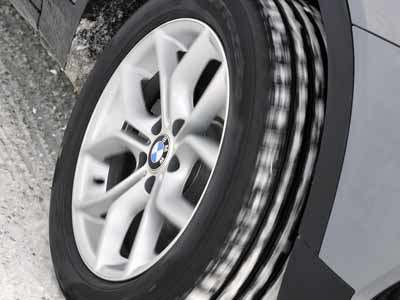The Pan-European roadside assistance company Mondial Assistance has revealed that British drivers are not making the switch over to winter tyres, despite wintry weather conditions currently creeping across the country.
A recent survey carried out by Mondial Assistance shows that 66% of UK motorists are not planning to fit winter tyres to their vehicles. Just 27% of respondents said that they would be prepared to consider buying snow socks for their wheels to improve grip in the snow, and just 4% were considering snow chains.
Government figures reveal that more than 18,000 road accidents in the UK were caused by snow and ice last winter, and Mondial Assistance are now urging British drivers to heed the safety advice and make the change to specialist winter tyres. The use of winter tyres is standard practice across most of Europe, even in countries with a similar climate to the UK.
The Automotive Director for Mondial Assistance UK, Lee Taylor, released the following statement on the issue:
"Over the last two winters, the UK has suffered from severe weather and more is expected to come early in 2012. Yet despite the fact that 64% of motorists in our survey said driving was more difficult in the snow last year, many people are reluctant to invest in winter tyres or alternatives such as snow socks. However it was only just over a year ago when motorists got caught out by the unusually early snowfall, demand outstripped supply for winter tyres, so it makes sense to buy them now and be prepared."
The firm are also reminding British drivers that winter tyres are not only useful in the snow. They also offer improved grip in cold dry conditions, meaning better performance throughout the winter. This is because they are made from a softer compound which is able to retain its flexibility in cold weather. The ordinary summer tyres which are fitted as standard when you buy a car will begin to lose their flexibility, and hence some of their grip, whenever the temperature drops below 7 degrees centigrade. In addition to this winter tyres also offer a reduced risk of aquaplaning when driving on slush or on wet roads.
46% of the survey respondents who said that they would not be making the switch to winter tyres reported that this was because it would be too expensive. But as Taylor Lee points out, they are no more expensive over the longer term:
"Winter tyres are an investment if swapped half way through the year with summer tyres as both sets will wear half as much. But fundamentally, winter tyres offer increased performance and safety, helping to keep you on the road and reduce the risk of an accident for several winters to come."








